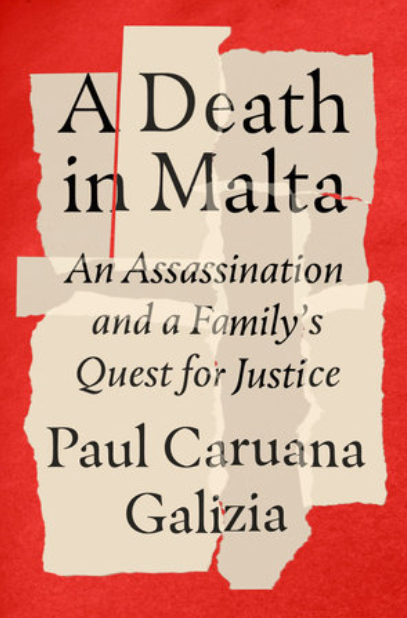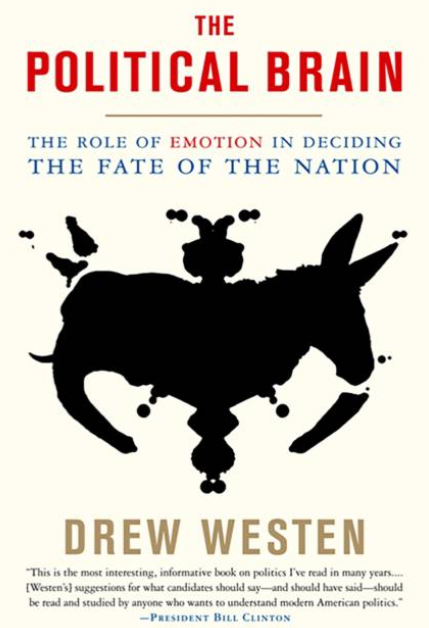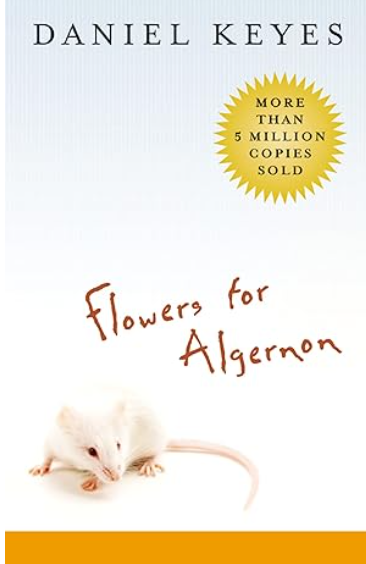People, power and pages: ECDA's summer reading recommendations
- European Center for Digital Action
- Jul 25, 2025
- 5 min read
Updated: Jul 28, 2025
Whether or not you’ll be lounging by the beach this summer—it’s the ideal time to catch up on your reading or discover something new. If you’re in need of some inspiration, we’ve got you covered. ECDA team members shared their recommended reads, and we’ve collected them in the list below. Spanning politics, democracy, technology and many other areas from a wide range of approaches and imaginative angles—there’s something here for everyone!
Among our non-fiction picks is a devastating exposé of a government corruption and criminal collusion in Malta, a groundbreaking neurological approach to voter behavior, and an account of how platforms have led to the emergence of "personal brands" with profound consequences for society. Included in our suggestions for fiction is a cautionary tale about how environmental catastrophes could bring societies to the brink, a story of hope and resilience in a dystopian future, and a moving meditation on what it means to be human as artificial intelligence gains ground. You’re guaranteed to find something to whet your appetite!
NON-FICTION

A Death in Malta: An Assassination and a Family's Quest for Justice, by Paul Caruana Galizia
Paul Caruana Galizia’s A Death in Malta is a powerful memoir and investigative true‑crime account chronicling the 2017 assassination of his mother, investigative journalist Daphne Caruana Galizia, who was killed in a car bombing after exposing deep-rooted government corruption in Malta. The book weaves together a family’s grief and relentless fight for justice with a gripping narrative that reads like a political thriller. It unpacks the wider atmosphere of impunity on the island and highlights how Daphne’s journalism threatened entrenched power structures (Goodreads summary).

The Political Brain, by Drew Westen
Westen turns conventional political analyses on their head, suggesting that the question for Democratic politics isn't so much about moving to the right or the left but about moving the electorate. He shows how it can be done through examples of what candidates have said—or could have said—in debates, speeches, and ads. Westen's discoveries could utterly transform electoral arithmetic, showing how a different view of the mind and brain leads to a different way of talking with voters about thorny issues (Goodreads summary).

Extremely Online: The Untold Story of Fame, Influence, and Power on the Internet, by Taylor Lorenz
By tracing how the internet has changed what we want and how we go about getting it, Lorenz unearths how social platforms’ power users radically altered our expectations of content, connection, purchasing, and power. Lorenz documents how moms who started blogging were among the first to monetize their personal brands online, how bored teens who began posting selfie videos reinvented fame as we know it, and how young creators on TikTok are leveraging opportunities to opt out of the traditional career pipeline. It’s the real social history of the internet (Goodreads summary).

Change for better - Behaviour Science Lessons from the world’s top practitioners, by Bernard Ross, Madeleine Croucher, Meredith Niles, and Omar Mahmoud
Behavioral science brought ‘out of the lab’ and into real-life fundraising programs. The book showcases dozens of use cases drawn from different settings and from all around the world. A must-read for practitioners using the ‘RAISE’ model: Relevant, Appealing, Intuitive, Social, and Easy (Goodreads summary).
Amusing Ourselves to Death: Public Discourse in the Age of Show Business, by Neil Postman

Published in 1985, Postman’s analysis of how television and visual media reshape public discourse—especially in politics—remains strikingly relevant today. While the screen has shifted from the living room to the palm of our hands, and formats from TV to vertical video, the underlying pressures have only intensified. In a media environment dominated by spectacle, it’s those who can entertain, provoke emotion, and hold attention who come out on top. Despite its weighty subject, the book is a surprisingly accessible and engaging read. As campaigners are in awe of the Mamdani campaign, or trying to piece together a social media strategy for the next election, this book serves as a good foundational text.

Revenge: The Inside Story of Trump's Return to Power, by Alex Isenstadt
A gripping insider’s account of Donald Trump’s unprecedented return to the White House in 2024, Revenge reveals the ruthless strategies, backroom dealings, and politics of vengeance that propelled his comeback. With sharp analysis and vivid details, Isenstadt shows how Trump turned grievance into political weaponry, offering essential insights for progressive campaigners determined to understand and counter authoritarian tactics (Goodreads summary).

Thinking, Fast and Slow, by Daniel Kahneman
A book that dives deep into how our minds work. It introduces two systems: System 1 (fast, intuitive) and System 2 (slow, analytical). Kahneman explains why we often rely on snap judgments—and when that goes wrong. Through real studies and examples, he reveals cognitive biases that shape our decisions. He breaks down how we misjudge probabilities, risks, and even our own experiences. Kahneman’s insights help readers spot flawed reasoning in everyday life. A book that challenges the way we think about thinking itself (Goodreads summary).
FICTION

Flowers for Algernon, by Daniel Keyes
Flowers for Algernon explores the ethical and emotional implications of artificially enhancing human intelligence. Through the eyes of Charlie Gordon, a man with a cognitive disability who undergoes an experimental surgery, the story examines how intellect affects identity, relationships, and human dignity. As Charlie’s intelligence grows and then fades, the novel raises profound questions about the value of self-awareness and the treatment of those who are different (Goodreads summary).
Returning to Reims, by Didier Eribon

After his father dies, Didier Eribon returns to his hometown of Reims. For years, Eribon had thought of his father largely in terms of the latter's intolerable homophobia. Yet his father's death provokes new reflection on Eribon's part about how multiple processes of domination intersect and he embarks on an investigation into the past and his own trajectory. His story weaves together reflections on the class system in France, the role of the educational system in class identity, how class and sexual identities are formed, and on the recent history of French politics, including the shifting voting patterns of the working classes— reflected by Eribon's own family, which changed its allegiance from the Communist Party to the National Front (Goodreads summary).

The High House, by Jessie Greengrass
A quietly devastating tale of climate collapse and survival, The High House is both an urgent wake-up call and a thoughtful meditation on responsibility, preparedness, and community in times of crisis. As rising waters isolate a small group living on England’s rapidly shrinking coast, Jessie Greengrass explores how far we must and can go to protect each other and the future. Essential reading for campaigners seeking emotional depth, moral reflection, and a powerful reminder of why political action on climate matters (Goodreads summary).

Parable of the Sower, by Octavia E. Butler
Prescient, gripping, and powerfully imaginative, Parable of the Sower paints a near-future America ravaged by climate chaos, social breakdown, and systemic injustice. Follow young Lauren Olamina as she navigates a world in crisis, planting seeds of hope, resilience, and radical change through a new community-centered vision. A must-read for progressives who believe in shaping a different future. One rooted in empathy, resilience, and collective action (Goodreads summary).

The Plot Against America, by Philip Roth
A gripping alternative history novel by Philip Roth. It imagines an America where Charles Lindbergh, a Nazi sympathizer, wins the 1940 presidential election. Roth masterfully explores themes of fascism, antisemitism, and national identity. The story shows how quickly democratic institutions can erode under charismatic authoritarianism. Its intimate, almost autobiographical style makes the national crisis feel deeply personal. Fear and uncertainty creep into everyday life, especially for Jewish families. The novel is both a warning and a reflection on American vulnerability. Published in 2004, it gained renewed relevance in recent years (Goodreads summary).



Comments